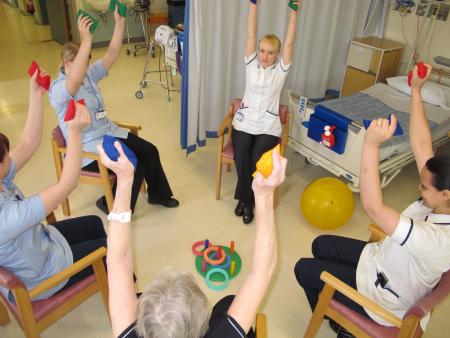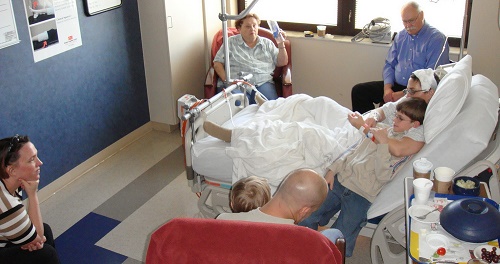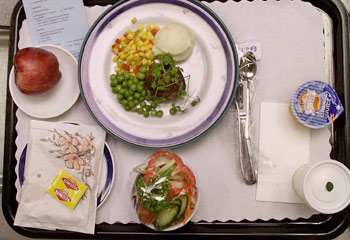The rooms of patients recovering from surgery are often filled with cards, flowers and other gifts to cheer them up. These kind gestures lift the spirits and the ordeal of undergoing surgery becomes bearable. For some patients, the feeling of grief, anxiety and despair persists. The surgery takes a toll on their mental wellbeing. This phenomenon of depression after surgery is not uncommon but it is less understood.
Symptoms of Post Surgery Depression

After surgery, the physical condition of the patient is very closely monitored and somehow the emotional aspect of recovery is overlooked. Most of the times, patients are not aware that they can develop depression after undergoing surgery. Doctors, nurses and relatives of all the patients undergoing surgery should be aware of the following symptoms of depression after surgery, so the condition is picked up early and dealt with accordingly.
- A feeling of extreme tiredness and fatigue
- Difficulty in sleeping
- Loss of appetite and weight loss
- Bouts of crying
- Ideas about self-harm
- Loss of interest in daily activities
- Low morale and lack of motivation
Causes of Post Surgery Depression
There are many theories about the reasons behind depression after surgery, the most common causes include:
- The side effects of anesthesia can manifest as depression. These medications disturb the brain chemistry and can lead to depression.
- Uncontrolled or poorly controlled pain.
- Depression can be due to side effects of medications prescribed after surgery. Some painkillers can lead to depression and some can cause withdrawal symptoms very similar to depression.
- An upset tummy and digestive disturbances can lead to a depressing feeling.
- After any major surgery, the recovery can be long and staying in bed can be very frustrating and depressing.
- Depression after surgery can be due to post surgical traumatic stress syndrome (PSTSS). This condition is another variant of post-traumatic stress syndrome.
There are a lot of other factors which can lead to depression and a feeling of despair. The anxiety and fear of developing a disability, inability to sleep, financial concerns, lack of control over decisions regarding treatment, difficulty in communicating with the healthcare professionals and family members can all add up and lead to depression. The fear of one’s own mortality can be the biggest trigger for depression.
How to Treat Post Surgery Depression
The treatment for depression after surgery is similar with the usual treatment of depression, but it can be tricky. The physical condition of the patients after surgery is not as strong as those who haven’t undergone surgery, so extra care must be taken to treat them.
Following activities can lead to a speedy recovery and can also reduce the chances of developing depression.
1. Do Exercises

Exercise is one of the most effective ways to lift the spirits. Staying active not only keeps your body in shape but it is also extremely good to reduce stress and elevate your mood. If you have been working out before surgery, it would be easy for you. If you haven’t been much active before the surgery, it is high time that you take up some physical activity. Start with a walk or some light exercise after getting approval from your doctor.
2. Stick to a Sleep Plan

When you spend most of your day in bed, it becomes hard to go to sleep. To avoid any sleep disturbances, stick to a routine and follow it. Wake up at your usual time and keep yourself well groomed. You will feel more cheerful in clean clothes and combed hair.
3. Stay Connected with Friends and Family

Feeling lonely can be very depressing especially if you are recovering from surgery. Try to stay connected to your loved ones. If you are hospitalized and they are unable to visit you every day, you can use the phone and other social media tools to stay in touch.
4. Speak Out

Do not keep all your fears and anxieties to yourself. Talk to your family and friends about how you are feeling. If you do not want to share your problems with them and feel that they will get more worried, you can take professional help and talk to a therapist or a health care provider.
5. Try to Be Healthy

Take care of your physical and mental health. Eat a balanced diet and stay away from negative thoughts. A healthy lifestyle adopted at this stage will help you in the future as well and these lifestyle modifications will also speed up your recovery.
6. Take Anti-Depressant Medication

If the post surgery depression is not getting better or the symptoms are severe, anti-depressant medicines can be prescribed. The latest anti-depressants are associated with fewer side effects. The most effective and commonly prescribed medicines are tricyclic antidepressants, serotonin norepinephrine reuptake inhibitors (SNRIs) and norepinephrine-dopamine reuptake inhibitors (NDRIs). Talk to your doctor if you are feeling depressed and they will discuss the treatment options with you.
